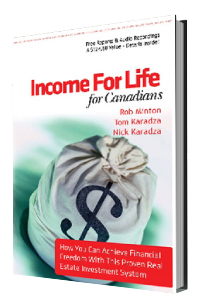Converting a Personal Property
Into an Income
Property
Maybe you are in a similar
situation as many investors. Your current home no longer meets your needs for
whatever reason, but it would be a great rental property. Instead of selling
the home, you decide to take the equity out of the home to purchase your new
primary residence, and keep the original property as an income property. There are a few reasons you
may want to do this: Whatever your reason for
converting your personal property into an income property, there are a few
things you will want to know. The interest on mortgages
obtained for investment properties is tax deductible. However, if you’re taking
out a loan to purchase a new principal residence against what will be the
investment property (your original property), the interest on that loan will
not be tax deductible. While simplified, that’s because the interest is only
tax deductible if: The moment a property stops
being your primary residence and becomes an income property, you need to get an
appraisal. That’s because the use of the property changes. Canada
Revenue Agency (CRA) regulates when and how to change the use of your
property. Every time you change the use of your property, it becomes valued at
fair market value. Any appreciation from the date it stops being your primary
residence and becomes an income property would be considered capital gain. You don’t have to pay
taxes on the appreciation value that occurred over the years the home was your
primary residence, but when you eventually sell the property you will have to
pay tax on the capital gain seen over the years that the property functioned as
an income property. That’s why you want to make sure that you have your home
appraised before making changing its use to an income property. The same thing holds true
if you add an income suite to your home. As soon as a portion of your home is
used to generate income, you will need to assess the value of your home. Then
the percentage of the capital gain of your home used for income will be subjected
to taxation when you sell. However, you do not have
to change the use of your home if: If
all three conditions are met you do not have to make any changes to the use of
your home. However, if these conditions aren’t met, and you have to change the
use of your home, you will have to split the selling price of the home based on
square metres or the number of rooms in the house and pay tax on that
percentage of the capital gain. Maybe you have to move for
work and you don’t want to sell your current house because you intend to
eventually move back, and you’d prefer renting it out for the time being. Well,
I have some good news for you. You don’t necessarily have to change the use of
your home. You can make an election
to extend the use of your home as your principal residence, even if you are
using it as a rental or as a business property. By doing this you won’t have to
report any capital gain or pay tax on that capital gain over this period of
time. With this election, you can claim principal residence as the use of the
property up to four years regardless of its use. However, if you make this
election you have to: If four years is not
enough time, you can extend this time indefinitely as long as you: If you can no longer live
in your home and it would be a good rental property then it may make a lot of
sense to hold on to it. Just know that there is more work involved than just
renting it out. Just like you would when buying a new investment property,always consult with a real estate accountant (we're not accountants!) for proper tax advice before converting a personal
property into an income property. Some Cool Free Stuff... Step 1: Grab a free digital copy of our real estate investing book, Income For Life For Canadians, right here. This book has been downloaded over 22,597 times and has helped hundreds of investors kick-start their investing with simple and straight forward strategies that you can implement right here in Canada. You'll also receive our weekly [Your Life. Your Terms.] email newsletter with the latest investing updates and videos. Step 2: Free Weekly Investing Videos & Articles: Get the latest updates and join the over 10,000 other Canadians enjoying the weekly [Your Life. Your Terms.] email newsletter. The email is sent out each Thursday. And as a little bonus we'll give a FREE digital copy of the book, Income For Life For Canadians, too! Your Life. Your Terms. Step 3: Free LIVE Investing Class: Do you live in the Greater Toronto or Golden Horseshoe Area? Come out to our next introductory "Investing in Nice Homes in Nice Areas" Real Estate Class. It's 90-minutes and you'll learn a ton - promise!Thousands of investors have now joined us for this class and the feedback has always been amazing.The Interest on the Mortgage
Will Not be Tax
Deductible You’re Changing the Use of the Property







